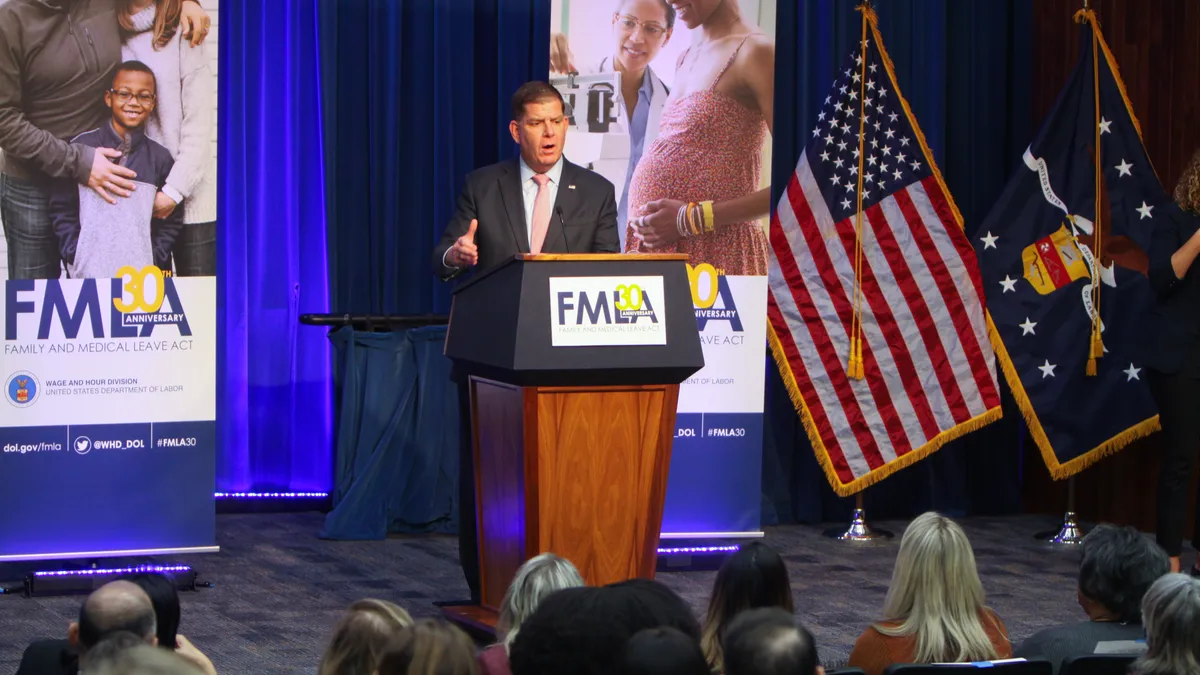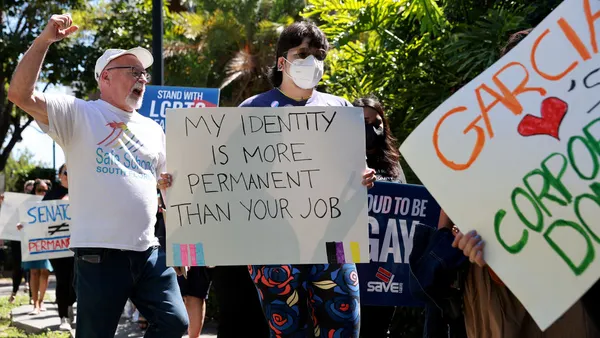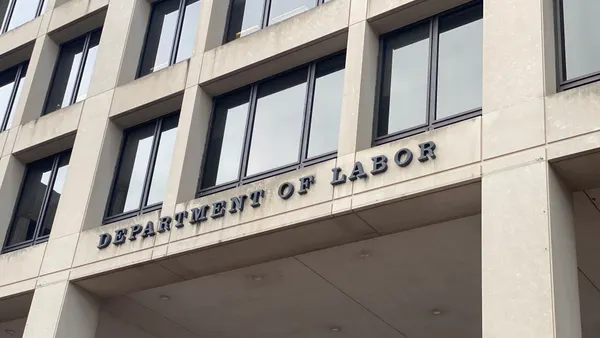WASHINGTON — The secretary of Labor, second gentleman and worker advocates marked the Family and Medical Leave Act’s 30th anniversary with a renewed call for national paid leave: “We can’t take away from the importance of this law,” Secretary Marty Walsh said during a U.S. Department of Labor event Monday, but “we can build on what this law’s intention was.”
The FMLA’s anniversary should serve as a moment for celebration, said Jocelyn Frye, president of the National Partnership for Women and Families, the organization that took a lead role in the law’s drafting. But it also should serve as a moment for advocates to rededicate themselves to the push for paid leave, she said; “The FMLA was only the first step.”
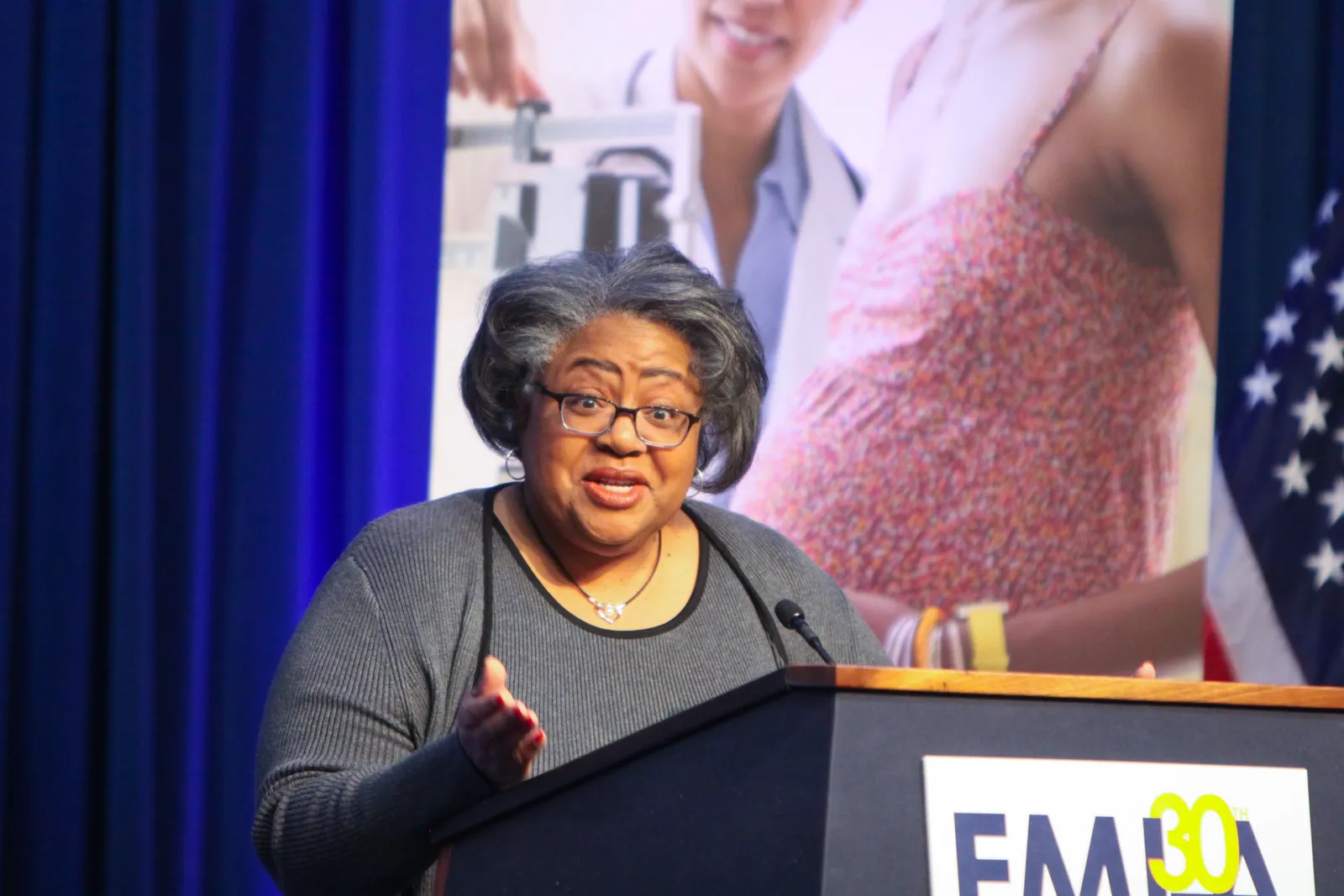
Details remain unclear
No single paid leave proposal has gained significant traction among stakeholders. Both business and employee advocates have floated options, with funding coming from myriad proposed sources: employers, employee payroll taxes and even workers’ own social security accounts.
The Society for Human Resource Management previously backed a Republican proposal that would have created a voluntary program under which employers could opt to provide paid leave, in return for an exemption from the patchwork of state and local mandates.
DOL has sought stakeholder input on paid leave programs and at Monday’s event hosted two lawmakers who support a bill known as the FAMILY Act that would have employers and employees share responsibility for funding through a tax.
The bill’s sponsor in the House, Rep. Rosa DeLauro, D-Conn., urged advocates in attendance Monday to avoid too many compromises when negotiating paid leave legislation: “We need to fight harder to get it done and we should not negotiate away and undermine the direction that we want to go in to get these bills passed and across the finish line,” she said.
AFL-CIO President Liz Shuler similarly promised the business community a fight: “We have been on this stepping stone for 30 years — an entire working generation,” she said of the FMLA. It’s time for paid leave, she said, and “we’re going to keep taking that fight to big business, to special interests.”
Leave stigma persists
Monday’s speakers focused largely on a paid leave mandate but several urged stakeholders to reduce stigma around existing leave as a way to reduce inequalities at work.
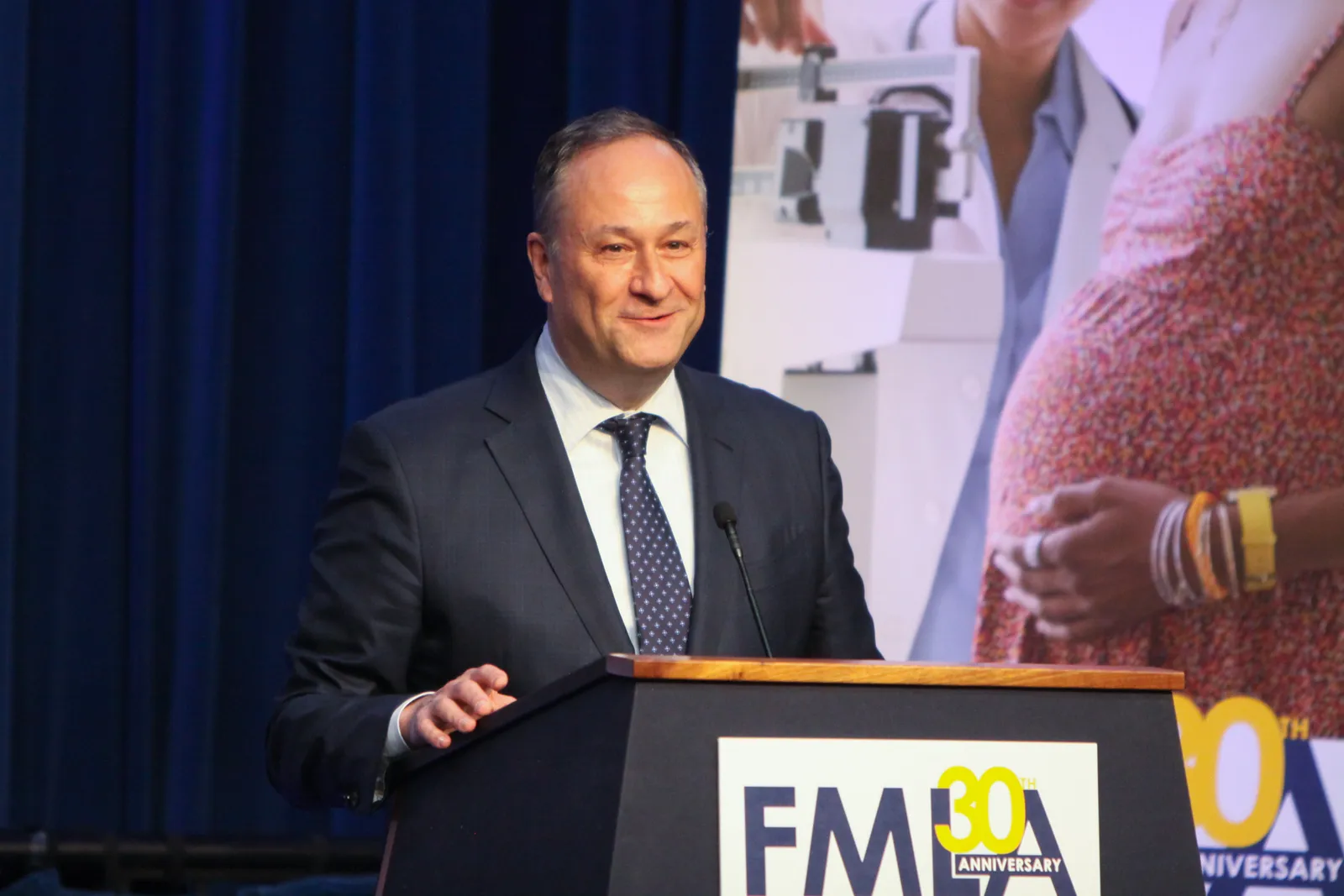
Walsh noted a stigma that persists around leave for mental health. Gayle Goldin, deputy director of the agency’s Women’s Bureau, cited gender inequality. True gender equality in the workplace will not come only from women having equal opportunities at work, she said; men need an equal opportunity to provide care.
Second gentleman Doug Emhoff also focused on men. “We need to normalize taking leave,” he said. “It’s okay to take leave in this hardworking society of ours, especially for men.”
“[It’s] not a sign of weakness to take time to care for your family or a newborn,” he said. Regarding leave after his own children’s births, Emhoff said, “I didn’t do it, and I’ve regretted it every single day since.”



